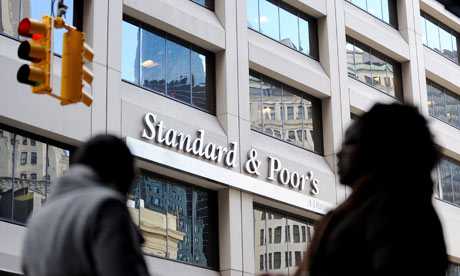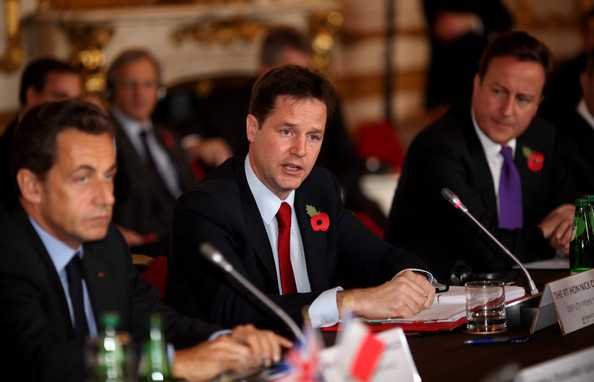Standard & Poor’s expected downgrade could create panic in the financial markets and make eurozone crisis even worse
Richard Wachman, City editor, Toby Helm and Kim Willsher

France could be stripped of its triple-A credit rating before Christmas, raising new doubts about the survival of the euro, analysts have predicted.
Standard & Poor’s – one of the three top rating agencies – is expected to cut France’s rating within days, in a move that would weaken its ability to raise funds on financial markets.
The move would raise doubts over the future of the single currency at a time when questions abound as to whether the deal thrashed out in Brussels represents the breakthrough hoped for in advance of the summit. Andrew Tyrie, chairman of the Commons Treasury select committee, raised the spectre of Greece leaving the eurozone, saying it was unlikely Athens could afford to pay its way if it stayed in the zone. “Few people believe that Greece can remain solvent within the eurozone,” he said. “Should Greece have to leave, the recapitalisation of a number of continental banks would be necessary.”
David Cameron and George Osborne have stressed that their top priority is for the eurozone to survive the crisis because the consequences of a disorderly breakup would be devastating for the UK as well as the European economies. However, most Tory MPs now doubt that it can survive in its current form. Bill Cash, the veteran Eurosceptic MP, said: “The entire European Union project is unravelling as the euro itself unravels.”
The imminence of a ratings decision by S&P may explain why France has sought to deflect attention by lashing out against Britain, claiming the UK’s financial position is weaker than its own. Last week the Bank of France suggested the credit rating agencies train their fire on London, even though there seems no imminent danger of Britain losing its premier rating.
After days of angry exchanges between Paris and London, both sides called for a ceasefire. A senior British diplomatic source said: “I hope all this calms down soon, as it is not in anyone’s interest for it to continue. That, I believe, is why the French prime minister called Nick Clegg on Friday afternoon [to build bridges].”
The diplomat added: “We can only guess that what’s behind it is that they’re so nervous about losing the triple-A rating, nervous not just for political and economic reasons, but because there’s an election coming up.”
Analysts said that if France’s rating was slashed its borrowing costs would rise, making it more expensive for Paris to refinance its debt burden in the new year. A downgrade would also hit France’s ability to contribute to the European financial stability facility, set up by members of the eurozone to combat the eurozone’s sovereign debt crisis, and provide emergency funding. Traders in London said the price France has to pay to borrow has already risen, indicating that markets have partially discounted the possibility of a lower credit rating.
France has to pay more to borrow relative to fellow triple-A rated Germany: when France borrows over 10 years it pays an interest rate that is at least a percentage point higher than what Berlin pays.
One analyst said: “The overall perception is that French finances are weaker than Germany’s and this imposes significant extra costs on France.”
Adding together repayments of existing debt, interest owed and new borrowing, France needs to find €400bn (£335bn) next year just to stay afloat. An extra 1% would cost French taxpayers €4bn a year. European leaders are under pressure to boost the firepower of the EU’s multibillion bailout package after Belgium’s credit rating was cut by Moody’s, another of the top three ratings agencies. Moody’s warned that indebted eurozone countries such as Belgium would find it increasingly hard to fund their debts or achieve economic growth in the face of Europe’s austerity drive. “The fragility of the sovereign debt markets is increasingly entrenched and unlikely to be reversed in the near future,” warned Moody’s.
Rival ratings agency Fitch said it could cut Belgium’s credit rating, along with those of Spain, Italy, Slovenia, Cyprus and Ireland. Fitch kept France’s AAA credit rating intact, although it revised its outlook for the country down to “negative”.
The latest credit rating changes came as the EU released details of the “fiscal compact” deal designed to rescue the euro.
www.guardian.co.uk, 17 December 2011

